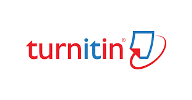Deciphering Smart Contracts, Legal Challenges, and Opportunities in Implementing Blockchain in the Property Sector in Indonesia
Abstract
This research investigates the implementation of smart contracts in the Indonesian property sector, examining the legal opportunities and challenges involved. Blockchain technology offers high transparency, efficiency, and security in property transactions, but faces regulatory and infrastructural hurdles. The aim of this research is to explore the related legal dynamics, identify socio-economic impacts, and offer sustainable solutions. The research method employed is a qualitative legal approach to gather and analyze data. The findings indicate that although blockchain can expedite transaction processes and enhance transparency, the legal validity of smart contracts and consumer protection remain major issues. Regulatory updates and increased awareness of data security are necessary to optimize the adoption of this technology in Indonesia.
Keywords: Blockchain., Property law., Regulation., Smart contracts., Transparency
Full Text:
PDF (Bahasa Indonesia)References
Buku
Narayanan, A., Bonneau, J., Felten, E., Miller, A., & Goldfeder, S. (2016). Bitcoin and Cryptocurrency Technologies: A Comprehensive Introduction. Princeton University Press.
Jurnal
Budianto, A. (2019). Implementasi Kontrak Pintar (Smart Contracts) dalam Transaksi Properti di Indonesia: Tantangan dan Prospek. Jurnal Hukum Bisnis, 3(2), 123-135.
Kusumo, B. W., & Santoso, A. B. (2020). Tantangan Regulasi dalam Implementasi Blockchain pada Industri Properti di Indonesia. Jurnal Hukum dan Pembangunan, 50(1), 45-56.
Pranata, R., & Wiratama, F. (2021). Implikasi Teknologi Blockchain terhadap Keadilan dalam Akses Properti di Indonesia. Jurnal Keadilan, 7(2), 87-98.
Directorate General of Intellectual Property, Ministry of Law and Human Rights of the Republic of Indonesia. (2022). Legal Framework for Smart Contracts in Indonesia: Current Developments and Future Prospects. Jakarta: Directorate General of Intellectual Property.
Website
Szabo, N. (1994). Smart Contracts: Building Blocks for Digital Markets. Diakses dari: https://www.fon.hum.uva.nl/rob/Co urses/InformationInSpeech/CDRO M/Literature/LOTwinterschool200 6/szabo.best.vwh.net/smart_contrac ts_2.html
World Bank Group. (2018). “Blockchain and Smart Contracts for Housing.” Retrieved from https://www.worldbank.org/en/topic/housing/publication/blockchain-and-smart-contracts-for-housing
Kementerian Agraria dan Tata Ruang/Badan Pertanahan Nasional. (2021). “Rencana Pembangunan Jangka Menengah Nasional (RPJMN) 2020-2024.” Retrieved from https://tanahair.id/uploads/renstra/KAN_RENSTRATKLA_ATR-BPN_2020-2024.pdf
Kusuma, B. (2020). “Penerapan Teknologi Blockchain dalam Pembangunan Perumahan.” Retrieved from https://www.researchgate.net/publication/342216132_PENERAPAN_TEKNOLOGI_BLOCKCHAIN_DALAM_PEMBANGUNAN_PERUMAHAN
https://www.legalnexuslawfirm.com/id/hukum-properti-indonesia.html
https://siplawfirm.id/aturan-soal-properti-diatur-dalam-14-undang-undang-ini/?lang=id
DOI: https://doi.org/10.36987/jiad.v12i4.5743
Refbacks
- There are currently no refbacks.
<












